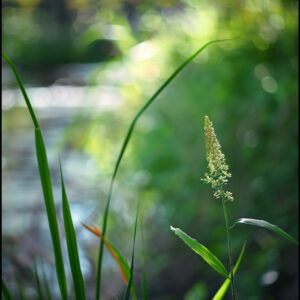
Introduction to Eco-Friendly Funeral Practices
The concepts of environmental sustainability and eco-consciousness have permeated every aspect of modern life, including the end-of-life rituals we hold dear. Traditional burial methods are being reevaluated due to their environmental impact, paving the way for greener alternatives. This article sheds light on environmentally friendly funeral practices and raises awareness among the Houston community. Transitioning to these sustainable choices reflects a respect for nature even as we honor the departed.
Environmental Impact of Traditional Funerals
Conventional funerals often involve practices that are not kind to the environment. Embalming fluid, typically containing formaldehyde, can leach into the earth, polluting the soil and groundwater. Additionally, the production of caskets and burial vaults utilizes significant resources and often results in a considerable carbon footprint. A rise in environmental consciousness has seen Houston residents exploring eco-friendly funerals as an alternative to the resource-intensive traditions.
Eco-Friendly Funeral Options in Houston
With a growing interest in reducing one’s ecological impact, many are turning to green funerals and burials. These services minimize harm to the planet while allowing families to celebrate the lives of their loved ones. One such option is a biodegradable casket or shroud, which decomposes naturally without leaving harmful residues. Another practice gaining traction is the use of refrigeration or non-toxic embalming fluids that are better for the environment.
Natural burial grounds present another sustainable option. These grounds forego traditional headstones and encourage local flora to grow, creating a living memorial that blends with the local ecosystem. Houston boasts several natural cemeteries that cater to those looking for a simpler, more ecological resting place.
Planning an Eco-Friendly Funeral
Planning a green funeral requires consideration and awareness of the available options. Communication with funeral directors who specialize in green services can be helpful. An important step is selecting a funeral provider that shares your commitment to sustainability and has the knowledge to guide families through the process of arranging a green burial. In Houston, there are specialists who focus on green funeral services, supporting the community in achieving a lower environmental impact during this critical time.
Educating the Public on Green Funeral Practices
Public understanding and acceptance of eco-friendly funeral practices are pivotal for their widespread adoption. In Houston, organizations and funeral providers take part in educational programs that aim to inform the community about the benefits and processes of green funerals. Workshops, seminars, and literature distribute knowledge on the subject, fostering a community that is informed about the choices that align with environmental stewardship
Online resources and platforms also play a significant role in raising awareness. Social media campaigns and websites are dedicated to educating individuals about the differences between traditional and green funeral practices. These virtual outreach efforts complement in-person education to broaden the community’s grasp of environmentally friendly end-of-life options.
Economic Considerations
While environmental benefits are a significant motivator, economic factors also influence the choice of green funerals. Many eco-friendly funeral options tend to be more budget-friendly compared to conventional funerals. The simplicity inherent in green practices often leads to reduced costs, making this a financially viable option for many families. By educating the public about the potential savings, more individuals may consider eco-friendly funerals not just as a moral or ecological choice but as an economically sensible one too.
Legal Requirements and Industry Standards
In Houston, as in other locales, green funeral practices must comply with state and local regulations. It is critical for service providers and consumers to be informed about relevant laws, which may affect everything from burial depth to the types of containers permitted. Funeral providers who specialize in eco-friendly practices are usually well-versed in these guidelines and can facilitate a process that is respectful of both legal standards and the environment.
The funeral industry also maintains standards to ensure that green claims are legitimate and not merely marketing tactics. Certification programs like the Green Burial Council provide guidelines and assurances that certified products and services comply with eco-friendly principles.
Overcoming Barriers to Adoption
Despite the advantages of green funerals, some barriers to widespread adoption remain. These include cultural norms, lack of awareness, and limited access to green funeral providers. Addressing these barriers involves ongoing public education about the importance and practicality of eco-friendly options. As the community becomes more knowledgeable, it is anticipated that green funerals will become a standard consideration within funeral planning.
Conclusion
The movement towards sustainable living has inevitably affected how society approaches mortality and remembrance. Houston is witnessing a growing trend in eco-friendly funeral practices that honor both the deceased and the environment. By embracing green burials and rejecting resource-heavy traditions, the community sends a powerful message of respect for our planet. Continued education and accessibility are key to ensuring that this trend flourishes, offering a meaningful, environmentally conscious choice for commemorating a life well-lived.
As we progress, it is expected that the community’s engagement with eco-friendly end-of-life practices will deepen. A commitment to sustainability in life and in death is a profound legacy to leave for future generations. It reflects a collective acknowledgement that our responsibilities to our home extend beyond our lifetime. Houston’s journey towards embracing green funerals shows a promising path other communities can follow, highlighting the significance of our final act as one that protects and cherishes the natural world.

What are eco-friendly funeral practices?
Eco-friendly funeral practices are methods of burial or cremation that aim to minimize the environmental impact. These practices include biodegradable caskets, natural burials that forgo embalming fluids, tree pod burials, and the use of sustainable materials. The goal is to reduce carbon emissions, conserve natural resources, and protect the ecosystem.
How does a natural burial differ from a traditional burial?
A natural burial is distinct from a traditional burial in that it avoids the use of embalming fluids, metal caskets, and concrete vaults. Instead, the body is placed in a biodegradable casket or shroud and buried directly in the earth. The process allows for natural decomposition and returns the body to the soil, supporting plant growth and the surrounding environment, unlike traditional burials which can inhibit decomposition and introduce toxins into the ground.
Are eco-friendly funerals more cost-effective than traditional ones?
Eco-friendly funerals can be more cost-effective than traditional funerals. Traditional funerals often involve expenses such as embalming, premium caskets, and burial vaults, which can add up. In contrast, eco-friendly funerals typically involve fewer services and simpler, biodegradable materials, which can lower the overall cost. Additionally, some natural burial sites might have lower plot prices compared to traditional cemeteries. However, costs can vary widely depending on the chosen services and location.





